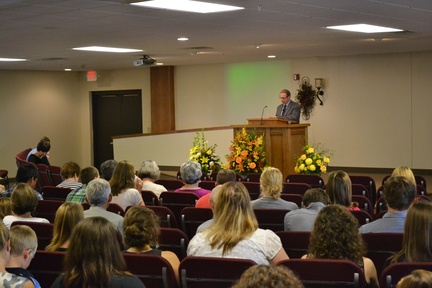5-28-2017 Deadly Faith James 2:14-17

I. Theoretical Inquiry (v. 14)
II. Theoretical Situation (vv 15–16)
The individual has expressed the commendable desire to see the needs of this brother or sister met. But have any needs been met? Has anything changed? No, the brother or sister is still naked and hungry! All that has taken place is that some words have been spoken.
Mere words are worthless if they do not lead to action, and, therefore, faith is useless if it is nothing more than a matter of words
The individual has expressed the commendable desire to see the needs of this brother or sister met. But have any needs been met? Has anything changed? No, the brother or sister is still naked and hungry! All that has taken place is that some words have been spoken.
Mere words are worthless if they do not lead to action, and, therefore, faith is useless if it is nothing more than a matter of words!
III. Actual Outcome (v. 17)
James believed firmly in salvation by faith, but he believed just as firmly that saving faith inevitably shows up in good works. Kent Hughes helpfully explains, ‘Paul’s teaching about faith and works focuses on the time before conversion, and James’s focus is after conversion’ (italics are his).1
We do not have a works faith, but we believe that faith works. We might say that good works cannot produce salvation, but salvation most certainly produces good works. John Calvin says, ‘It is faith alone that justifies, but faith that justifies can never be alone.’2
James is really dealing here, then, with a very common problem, namely, thinking we have true faith without really having it. He is dealing with the matter of being deceived about salvation. Notice again his questions in verse 14: ‘What does it profit, my brethren, if someone says he has faith but does not have works? Can faith save him?’
The emphasis is on a person saying that he or she has faith. But the absence of works from that person’s life proves that this faith is a matter of words only.
James is making the same point that the apostle John made: ‘My little children, let us not love in word or in tongue, but in deed and in truth’ (1 John 3:18). He would also have us remember the words of the Lord Jesus: ‘Let your light so shine before men, that they may see your good works and glorify your Father in heaven’ (Matt. 5:16).
So What?
Head faith by itself is empty faith and attempts to minister to the poor by pious words not accompanied by works.